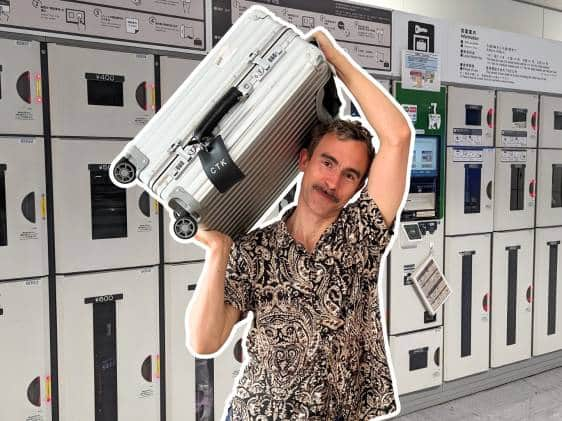Get your singing voice warmed up, because it’s time to talk about karaoke in Japan.
Karaoke is one of those things that people either love or hate. But in Japan, most locals are firmly in the love-it camp. This pastime is a great way to hang out with friends and blow off some steam. But the whole thing can be a little intimidating, because karaoke in Japan is very different from other countries.
Know before you go: Japanese karaoke basics
While karaoke first started in Japan, it changed a lot when other countries started doing it too. Meaning, karaoke here is probably very different to karaoke in your home country.
In Japan, the most popular way to do karaoke is in a private room at a karaoke hall. Basically, you rent a small room with your friends and then sing your heart out — no singing in front of strangers required. There are karaoke bars too, but they’re not as popular.

Another big bonus at karaoke is the food and drinks. Yes, expect soft-drink refill bars and all-you-can-drink alcohol plans when you go for karaoke in Japan. And if you’re peckish, you can often get food too. Of course, it’s not what we’d call gourmet, but you can usually get fried food, snacks, and small desserts.
How does karaoke in Japan work?
If you go to a karaoke hall in Japan, expect to do some paperwork. You’ll usually have to fill out a form that includes things like:
- The name and phone number of one member of the group
- Group size
- Desired length of your karaoke session
- Whether or not your group will order alcohol
The staff might ask to see I.D if you decide to order booze. However, if you ask for a student discount rate, they will always ask to see your student card. Keep in mind that student cards from overseas might not be accepted.
Once you’re done with the paperwork side of things, the staff will give you a receipt, tell you your room number, and send you on your way. You don’t need to pay until you’re finished.

Keep in mind that things can vary between different karaoke halls — for example, some might ask you to order your first drink before you go to your room. Others accept online reservations, or have check-in tablets at the entrance.
When you leave, make sure to bring your receipt to the reception area to pay. Most big chains accept credits cards, cash, and e-money, but they might not allow you to split the bill.
Pro tip: English-language support at karaoke halls is usually pretty limited. If you’re lucky, a staff member may speak some English, but usually the paperwork is all in Japanese. Google Translate is your friend here.
Understanding the price
Karaoke halls usually charge per person, or per 30-minute or 1-hour time block. There are also different food and drink “plans” or “courses” you can get. For example, you might choose the unlimited soft-drink bar, or an all-you-can-drink alcohol plan.
Some karaoke halls also have different types of rooms to choose from, with tiered pricing. Expect to pay more for rooms with dual projectors, large party rooms, and “first class” rooms. Prices also change depending on the time and day of the week.
Here is an example of the pricing for a standard room at a karaoke hall:
| Day/time | Price per 30 min |
|---|---|
| Mon. to Thurs. 12 p.m.- 7 p.m. | ¥146 |
| Mon. to Thurs. 7 p.m.- 5 a.m. | ¥601 |
| Fri. to Sun. 12 p.m.- 7 p.m. | ¥366 |
| Fri. to Sun. 7 p.m.- 5 a.m. | ¥853 |
Disclaimer: These prices are intended only as a very rough guideline. Prices vary throughout the year, and between stores — even if they are from the same chain.
Keep in mind that everyone in the group will be charged the same, no matter what. If someone has to leave early or doesn’t want to drink alcohol, they will still be charged the same as everyone else.
How do karaoke machines work?

The machines at most big karaoke chains in Japan can be set to display information in English, and sometimes Chinese or Korean too. The menu interface can become more simplified when you do this, but all the basic options will still be there.
You can use the tablet to search for songs (usually by title or artist), and then press “request” or “reserve” to add your song to the queue. If you want to look like a pro, you can also use the tablet to change a song’s key.
How to order food and drinks
Inside the karaoke room, there’s usually a food and drink menu. You place your order using the phone, it’s normally on the wall near the door. Again, the staff might speak English, but there’s no guarantee. Otherwise, if communication is proving challenging, you could go back out to the reception and talk face to face. Sometimes you can also use the tablet to order food and drinks.
If you opted for a soft-drink bar package, a staff member will tell you how to get refills. In many cases, there’ll be a self-serve drink station you can use, somewhere nearby. Otherwise, you may need to order refills on the phone.
Pro tip: To avoid extra charges, make sure you’re ordering from the correct menu. If you’ve ordered an all-you-can-drink package, there is usually a limited range of drinks included — so only order those.
Karaoke etiquette: The unwritten rules

While karaoke is a casual affair, there are some unwritten rules you should be aware of. Your local friends won’t kick you out if you break them, but if you stick to them everyone will have more fun. They’re fairly obvious. Here they are:
- Don’t queue up more than two songs for yourself in a row — nobody likes a mic hog.
- Don’t be too loud when others are singing (unless you’re cheering them on, then be loud).
- If your song is next, don’t leave the room — or let the others know to skip it. Otherwise it’s just awkward.
- Don’t skip other people’s songs — it’s just plain rude.
- Drinking alcohol at karaoke is normal, but don’t be that guy.
Also know that each karaoke hall or bar might have their own official rules. For example, whether or not you can bring outside food and drink, so check on these too.
How to save money at karaoke in Japan
Karaoke is usually a pretty affordable activity. However, there are a few ways to save money — and there are ways you can get hit with extra charges too.
Choose your day and time carefully
Karaoke halls have different pricing for different days and times. Usually Friday nights and weekends are the most expensive. Weekdays, especially before 6 p.m., are often the cheapest times. Look out for “free time” plans, which are a flat rate for a block of time, rather than a per-hour charge. Free-time plans are normally available during the day on weekdays.
Discounts, discounts, discounts
There are all kinds of ways to get discounts at karaoke. Student discounts are common, as long as you can show a student card (a local one is better, international ones might not be accepted). Often, there are also discounts for signing up to the karaoke chain as a member, following them on social media, or booking online.
Beware of extra and hidden charges
While karaoke halls are pretty straightforward about their charges, it’s easy to make a mistake. Overstaying your allotted time can result in extra charges, but you usually get a telephonic heads-up from a staff member when your time is nearly up.
Another common mistake is ordering from the wrong menu. If you pick all-you-can-drink, you’re usually restricted to certain beverages. If you order something different, you’ll be charged extra.
Where to go for karaoke in Tokyo
Karaoke hall chains

There are big karaoke hall chains all over Tokyo and the rest of Japan. Now, when we say big, we mean big — they often take up multiple floors or sometimes even a whole building. They’re also pretty flashy, with lots of neon lighting on the building, music blasting from speakers, and costumes in the window. Yes, like the popular go-kart tours, you can also dress up to do karaoke. Do we personally know someone who’s ever done it? No. But you can if you want to, we won’t judge you.
These chains are often near major train stations, and in business and entertainment districts. Some of the karaoke chains that are popular in Tokyo include:
- BIG ECHO: They claim to be the biggest karaoke chain in Japan. Look out for their striking red signage.
- JOYSOUND: Another heavy hitter, this karaoke chain now also has a karaoke app for the Nintendo Switch, so you can practise at home.
- Karaoke Manekineko: This chain gets bonus points for its cute lucky cat mascot, and the fact that they’re one of the only big chains that allows you to bring your own food and drinks.
- Karaoke kan: This chain is sometimes harder to spot because their signage isn’t always in English, but if you see “カラオケ館” on a big blue sign, that’s them.
- Pasela Resort: This chain fashions itself as fancier than the others, but for us the main draw is their menu. The selection is more than just basic fried foods, with burgers, pastas, and huge slices of honey toast for dessert.
Karaoke bars

Karaoke bars are closer to what many think of when they hear the word karaoke. Essentially, they’re just regular bars with a decent stereo set-up and a projector. You can find karaoke bars in areas like Golden Gai, that aren’t built up enough for karaoke halls to set up shop.
Karaoke bars can feel a little seedier and less (or more!) intimate than karaoke halls, but don’t let that scare you off — just practice normal safety measures and you’ll have a great time.
Places that have bonus karaoke machines or karaoke rooms
Sometimes you can just stumble across a karaoke machine when you least expect it. Love hotels, for example, often have them.
Some regular hotels and izakaya (Japanese-style bars) might also have private rooms set up with karaoke machines. Finally, if you find yourself at a sports and entertainment center like Round One, have a look around because some of the larger ones have small karaoke rooms.
Frequently asked questions about karaoke in Japan
How do I make karaoke less awkward?
Relax! Karaoke is meant to be fun, so don’t overthink things. We recommend queueing up a fun, older song that lots of people know to help break the ice.
What does “karaoke” actually mean?
The literal translation of “karaoke” is empty orchestra.
Can I sing English songs at karaoke in Japan?
Yes! Most karaoke halls in Japan have English songs — especially popular ones.
Where can I go for the best karaoke in Tokyo?
If you want the karaoke hall experience, there are lots around big train stations like Shinjuku and Shibuya. Other areas like Golden Gai have karaoke bars, but some are of dubious reputation, so exercise caution — and always, always avoid touts!
Is karaoke in Japan good for foreigners?
Karaoke in Japan is a fairly unique experience and we’d recommend it to anyone who’s willing to give it a try. That being said, it can be a little tricky for visitors to work it out on their own, but hey, that’s why we wrote this guide.
While we do our best to ensure it’s correct, information is subject to change.


























